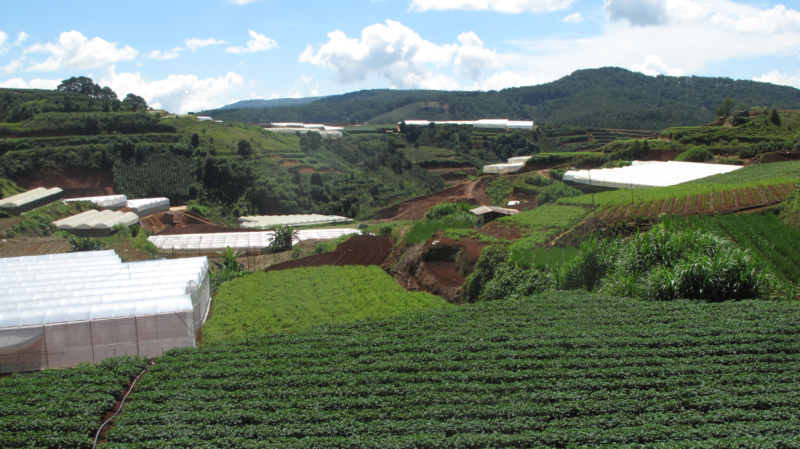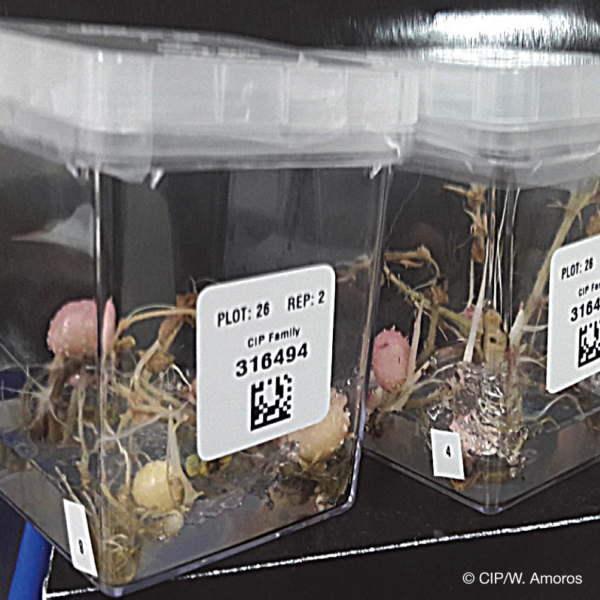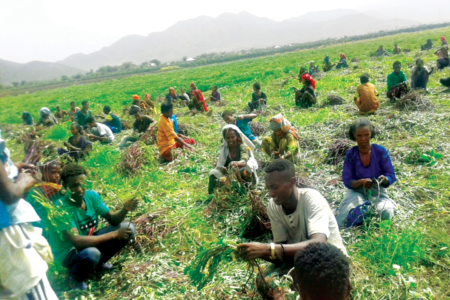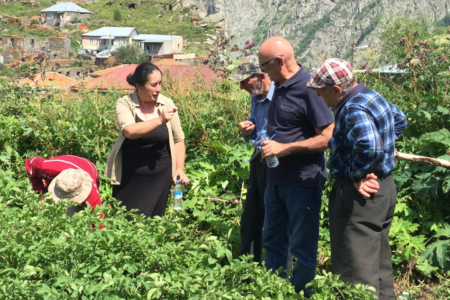
Climate change is increasingly threatening food security throughout the developing world, and there is urgent need for new, stress-tolerant varieties of major crops like potato. This project focuses on breeding early-maturing, stresstolerant potato varieties to boost productivity and incomes for farmers across Central and East Asia.
Background
Climate change ranks among the world’s most serious problems because of its direct impacts on food production and security. The effects of increasing temperatures and more frequent droughts are being felt acutely across Asia, the most populous continent. While
potato is a suitable crop for many regions within Asia, high temperatures and drought reduce yields by inhibiting tuber formation and enlargement.
Potato has great potential to contribute to food security and incomes among farmers, as well as providing nutritious, affordable food for urban consumers. The International Potato Center believes that over the next five years this work can help generate improvements in the incomes of five million small-sized farmer households. But there is an urgent need to develop stress-tolerant varieties that can be adapted to the local conditions.
‘Agile’ potatoes have good resistance to extremes of climate and pests and diseases, as well as having traits desired by consumers and processors. They can be adapted to a wide range of cropping systems in subtropical, temperate, and highland environments, and typically have a crop cycle from planting to harvest of less than 90 days. Early-maturing strains help farmers diversify their food and income sources and increase crop-system sustainability and productivity by planting potato between wheat and/or rice cropping cycles.
However, quality seed of the new varieties is currently in short supply in Asia, limiting the production of potato in the region. CIP is responding to demands for healthier, more robust potatoes to breed elite, disease-resistant adapted varieties and develop new cropping technologies. These research products will allow partners to disseminate seed of suitable varieties, thereby boosting productivity and incomes, and supporting value chain diversification.
Objectives
- Development of early-maturing potato varieties with tolerance to abiotic stresses (specifically heat, drought, and salinity).
- Determination of the stress tolerance and maturity period of selected varieties under the hot, dry conditions becoming an increasing feature of the climate in East Asia.
Approach
Potato breeders will develop early-maturing varieties and populations through parental selection and crossing. These strains will be selected based on their ability to grow under stressful conditions, including high temperature, drought, and excess soil salinity. Suitable clones will be evaluated in field trials in Peru and Vietnam. The collaborative activities will involve capacity development of Korean researchers through secondment to CIP headquarters as well as the provision of technical support to smallholders and government officials in Vietnam.
Gender-responsive data on farmer preferences for the new varieties will be assessed and incorporated in the potato
breeding and testing program.
Achievements / expected outcomes
CIP scientists have worked closely with researchers from South Korea and Vietnam to select suitable parents from the lowland tropic virus-resistant breeding population that were resistant to potato virus Y and late blight and early maturing. This led to production of true potato seed through artificial crossing at CIP headquarters in Peru, followed by in vitro screening of heat- (Figure 1), drought-,
and salt-tolerant seedlings and production of seedling tubers (Figure 2). The advanced clones selected will be grown under high temperatures and their glycoalkaloid content assessed in order to screen for quality.
Researchers will then undertake field multiplication and further selection of clones with the desired characteristics. High potential clones will be multiplied via tissue culture to produce clean virus- and disease-free planting materials. They will be further evaluated for yield and stress tolerance under farmer field conditions, with view to releasing the best clones for wider dissemination throughout South, Central and East Asia.
Key outputs
This process of in vitro screening for heat tolerance will permit the rapid identification of potentially high-yielding heat-tolerant clones.
| Outputs | Target | Achievement |
| Selected genotypes screened in vitro under extreme conditions of high temperature (25°C)* | 200 | 400 |
| Advanced families (from crossings) identifi ed with high percentage of selected heat tolerant genotypes | 9 | 6 |
| Early maturing varieties (90 days) resistant to potato virus Y, tolerant to heat and soil salinity will be identified | 5 |
* Selected genotypes will be multiplied to continue selection and evaluation under heat at field conditions.
Contact
Hugo Campos
CIP, Peru
h.campos@cgiar.org
Thanks to our donors




